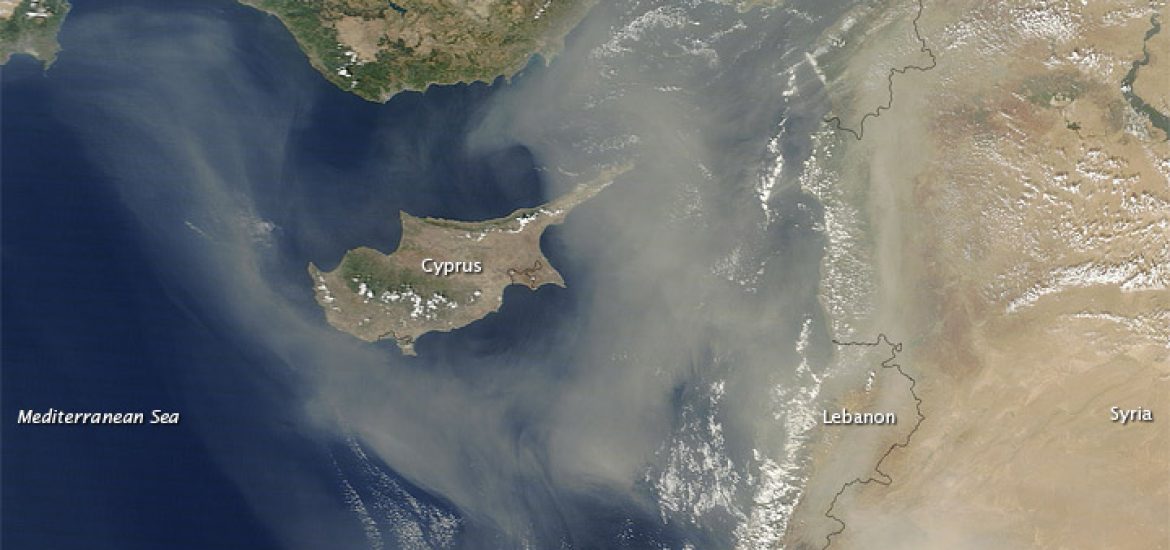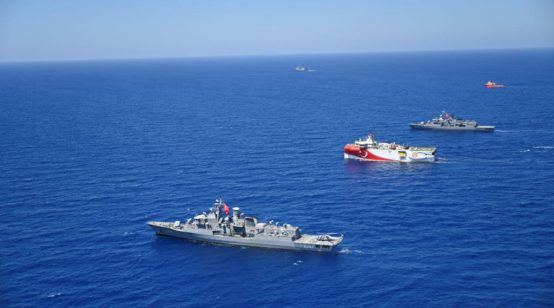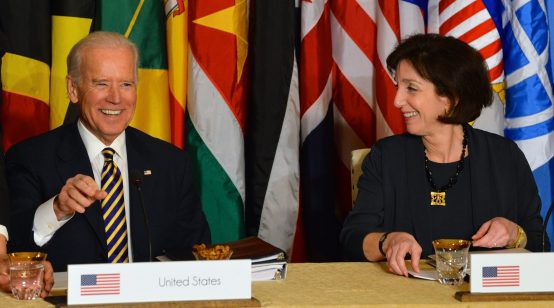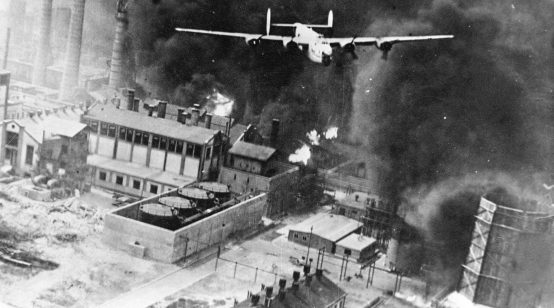
Not a week goes by without saber rattling in the Eastern Mediterranean waters off the divided island of Cyprus. There, the countries gathered in the US-backed Eastern Mediterranean Gas Forum (EMGF) are at loggerheads with Turkey over the development and monetization of the region’s newly discovered gas resources.
The Turks, whose relations with almost all parties involved are problematic, increasingly find themselves marginalized. However, if Cypriot gas is ever to reach Europe, the EMGF and its backers may find it in their best interest to lend an ear to Ankara’s concerns. The probability of facing new hurdles is higher than the likelihood of clearing existing ones.
Conflicting claims
The Turkish Republic of Northern Cyprus and Ankara claim to have equal rights to Cypriot resources, and have deployed a second drilling ship,Yavus, to the region. The vessel is scheduled to begin drilling in the waters to the east of the island later this month. It will join the Fatih, which is active in an area to the west of Cyprus, which the international community maintains is part of the EU-member’s maritime zone, better known as the exclusive economic zone (EEZ).
Ankara, however, begs to differ with this interpretation. It claims that Blocks 1, 4, 5, 6 and 7 are located within Turkey’s continental shelf and thus within its jurisdiction. In February 2018, the Turkish navy prevented Italian major Eni from exploring for natural gas in Block 3 on the back of this claim.
In June, Greek Prime Minister Alexis Tsipras called for EU sanctions against Turkey over what he called “illegal activities.” French President Emmanuel Macron doubled down on Tsipras’ statements, calling on Turkey to “stop its illegal activities in Cyprus’ EEZ.” Macron added that the EU would “not show weakness on this matter.” Earlier in May, the United States Department of State labeled the Turkish drilling campaign “highly provocative,” and said it risked “raising tensions in the region.”
On July 2, Reuters reported that Cyprus had started legal proceedings against three international companies involved in the operations of the Fatih drillship. “We are determined to do the same with the Yavuz,” the agency quoted a senior foreign ministry official as saying.
Unfazed
Turkey, then, finds itself pitted against both the EU and the United States. On the face of it, this should be enough to prompt policymakers to retreat to a more reasonable position. The entry into the region of the second Turkish drillship suggests the opposite. The reason for this is surprisingly simple: exploring gas resources offshore is one thing, exporting them is altogether another.
In a May 2018 FEUTURE paper, specialists Thedoros Tsakiris, Sinan Ulgen en Ahmet K. Han pointed out that “Turkey feels reasonably comfortable” that it cannot be left out when it comes to actually monetizing the gas resources in the Eastern Mediterranean.
While a host of options to export the gas have been floated, ranging from greenfield LNG facilities in either Cyprus or Israel to the EUR 6.2-billion Eastern Mediterranean Gas Pipeline Project, which is to export 20 bcm per year via Crete, mainland Greece, and onwards to Italy, few seem feasible at this point.
Not so fast
Apart from the technical challenges of building a 1,900-kilometer pipeline at great depths, the present global supply glut and accompanying low gas prices are sure to dampen the pipeline’s prospects. Weak demand in Southeastern Europe and competition from other gas supply options are other drags.
Pundits are often quick to point out that an export route via Turkey is a cost-effective option. In an article for the German Marshall Fund of the United States (GMF), Kadri Tastan and Tobias Kutschaka write that gas could be moved via the hydrocarbons import and export hub in Ceyhan to the Trans Anatolian Natural Gas Pipeline (TANAP), whose infrastructure for further transport through Turkey and to the EU is already in place.”
However, as Tsakiris, Ulgen, and Han point out, there is nothing that connects Ceyhan and TANAP. Even if there was, TANAP and the Trans Adriatic Pipeline (TAP) have no free capacity, and at present there is no alternative route to the EU apart from TAP. On top of that, for a pipeline to Turkey to be feasible, it would invariably have to traverse the EEZ.
Even if – hypothetically – all these obstacles were non-existent, plans for piping Cypriot gas directly into the Southern Gas Corridor would inevitably come up against Russian opposition. Moscow is steadily working to solidify its position as the EU’s main supplier via the Nord Stream 2 and Turkish Stream pipeline projects.
Enter Russia
On the face of it, the most logical solution might therefore be to pipe Cypriot gas to either the Damietta or Idku LNG facilities in Egypt. According to statements by Cyprus’ Energy Minister Yiorgos Lakkotrypis in May, a deal to that end could be imminent, even though production is not expected for another five years.
Damietta would be the reasonable choice, as it is the closest to the Aphrodite gas field. Delek Drilling (30 percent), Noble Energy (35 percent), and Shell (35 percent) control Aphrodite, which is in Block 12. However, Shell is a shareholder in Idku and may prefer it be used, even if the facility is twice the distance from Aphrodite as Damietta is. Further dimming the export prospects for Cypriot gas is the fact that liquefaction, transport, and regasification would likely make it more expensive in Europe than Russian gas.
In an ideal world, alternatives to Russian supplies for the EU would flow from Azerbaijan, Turkmenistan, the Kurdistan Region of Iraq and the Eastern Mediterranean. While this is unlikely, the prospect thereof might nonetheless increase competition and put further pressure on gas prices, which is not in Moscow’s interest.
It is likely, therefore, that Turkey can afford to act the way it does in the Eastern Mediterranean because it has tacit backing from Russia, which stands to benefit from deadlock in the area. However, Ankara’s position is not without its risks. One could argue that Turkey can only afford to remain on the sidelines if it stays on friendly terms with Russia. Ankara’s stance, as in the thorny issue related to Ankara’s purchase of the Russian S-400 missile batteries, could once more jeopardize its ties with the West.





